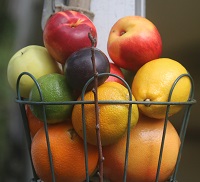
Working at home or overseas this course is designed for people who are enthusiasts of dining.
You don't need to work in the luxury market, as this course has fantastic practical components to cover all levels. From hands-on in the kitchen to management level.
A sound foundation for working in a restaurant, catering or other food service enterprise. Topics covered vary from kitchen and food management to planning a menu, restaurant staffing and waiting skills.
Our Food and Beverage Management students comments on the course:
"I have enjoyed the course and would study with ACS again" D. Hennessy